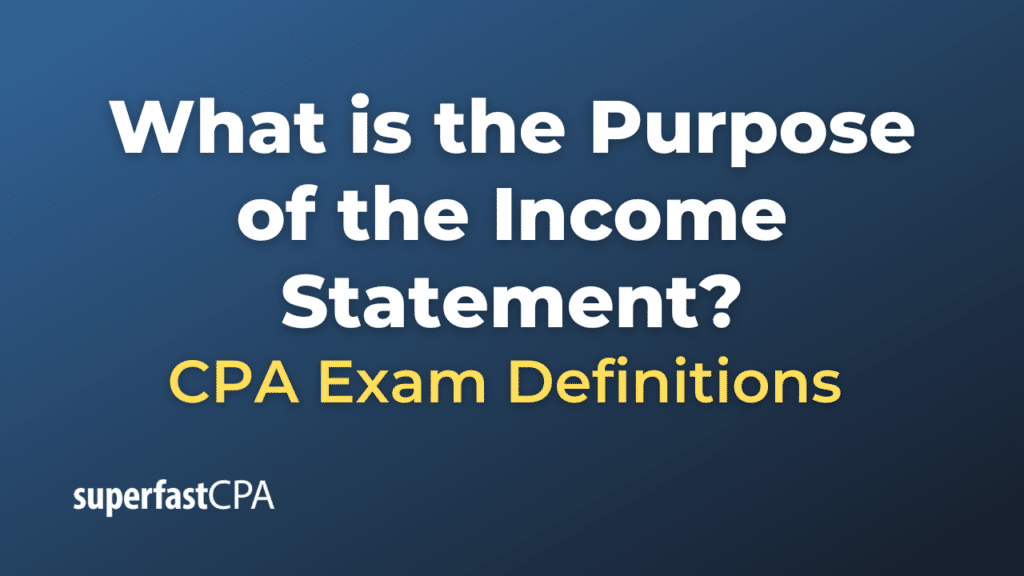Purpose of the Income Statement
The income statement, also known as the profit and loss statement, is a financial statement that reports a company’s financial performance over a specific accounting period. Here are the primary purposes of an income statement:
- Revenue and Expense Reporting: The income statement provides detailed information about a company’s revenues, costs, expenses, and net income. It shows how revenue is transformed into net income (or net profit).
- Profitability Assessment: It helps stakeholders assess the company’s profitability over a period. By looking at trends in net income, stakeholders can get an understanding of whether a company’s profitability is improving, worsening, or remaining stable over time.
- Decision Making: Investors use the income statement to make decisions about investing in a company. A company with strong profits may be a good investment, while a company with declining profits might be avoided.
- Performance Comparison: It allows for performance comparison across different companies within the same industry. This helps investors decide which company is a better investment.
- Regulatory Compliance: Companies are often required by law or by the rules of the stock exchanges on which they are listed to regularly publish income statements.
- Forecasting: Income statements can be used by management, analysts, and investors to make projections about future performance based on historical trends in revenues, costs, and expenses.
In summary, the income statement provides a detailed account of a company’s profitability and helps stakeholders make informed decisions about the company.
Example of the Purpose of the Income Statement
Let’s take an example of a simplified income statement for a hypothetical company, “Green Energy Corp.”, for the year 2023:
Revenue Sales: $1,000,000
Cost of Goods Sold (COGS)
Direct Labor: $200,000
Materials: $100,000
Total COGS: $300,000
Gross Profit
(Sales – COGS): $700,000
Operating Expenses
Salaries & Wages: $200,000
Rent: $50,000
Utilities: $10,000
Depreciation: $50,000
Total Operating Expenses: $310,000
Operating Income
(Gross Profit – Operating Expenses): $390,000
Non-operating Expenses
Interest Expense: $10,000
Pre-tax Income
(Operating Income – Non-operating Expenses): $380,000
Taxes
(Tax Rate 25%): $95,000
Net Income
(Pre-tax Income – Taxes): $285,000
This income statement tells us that Green Energy Corp. generated revenues of $1,000,000, had a cost of goods sold of $300,000 leading to a gross profit of $700,000. After subtracting operating expenses of $310,000, the operating income came to $390,000. After accounting for non-operating expenses and taxes, the company’s net income for the year was $285,000.
This statement allows stakeholders to see how revenue is transformed into net income, showing each step along the way. They can use this information to assess the company’s profitability, to compare its performance with other companies, and to make decisions about investing in or lending to the company.













